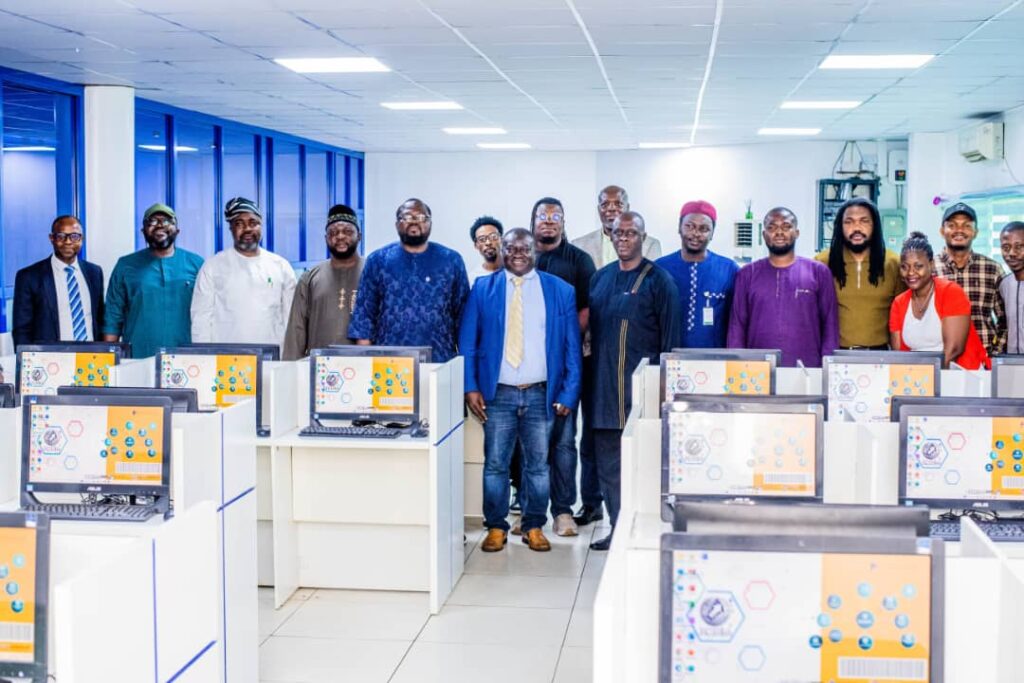The Digital Bridge Institute (DBI) and SBTS Nigeria Limited have concluded plans to unveil their digital infrastructure projects; Business Process Outsourcing (BPO) Centre and Security Operations Centre (SOC), established to train and empower thousands of Nigerian youths in outsourcing services and cybersecurity across the country.
The state-of-the-art digital infrastructure projects starting with a pilot study in Abuja and replicated subsequently in states, are expected to generate about 1,050 new jobs at DBI headquarters in Abuja, and over 20,000 jobs in the Institute’s centres in states including Lagos and Kano.
CEO of DBI, David Daser who spoke at the pre-launch and facility tour of both centres on Wednesday in Abuja, noted that in a renewed drive to support national development in the digital age and ensure an economic transformation, DBI and SBTS remain committed to building the digital capacity of Nigerians whilst providing job opportunities for the youths.
He said: “This event marks a significant milestone in the journey of the Digital Bridge Institute (DBI) as we evolve into a more agile, responsive, and future-focused institution that supports national development in the digital age.
“Today’s pre-launch is more than just the unveiling of new facilities, it is a powerful testament to collaboration, innovation, and our shared vision for a digitally empowered Nigeria.
“Our partnership with SBTS Group has enabled us to make this vision a reality, bringing to life a platform that will train, employ, and empower Nigerian youth in the high-demand sectors of outsourcing services and cybersecurity.
“The BPO Centre is designed to position Nigeria as a key player in the global outsourcing industry, while the SOC is a timely response to the escalating threats in our digital environment, ensuring we build capacity to protect our national digital infrastructure.
“With these centres, we are not only creating jobs, we are creating skills, resilience, and security.”
Daser urged the private sector to partner with the DBI and SBTS in building a smarter and safer digital country by engaging the services of its “skilled” workforce.
“By outsourcing your business processes to the DBI-SBTS BPO Centre, you not only benefit from top-tier, cost-effective services but also play a direct role in empowering the next generation of digital professionals in Nigeria.”
The CEO SBTS Nigeria Limited, Evelyn Lewis explained that the BPO Centre and Security Operations Centre infrastructures would provide services in oil and gas, banking and finance, fraud detection, medical, law, accounting and cybersecurity sectors.
Lewis who explained that both Centres were under the framework of its flagship initiative, the Intelligent Capacity Building Model (ICBM), noted that they would provide skilled professionals who would fill critical roles in cybersecurity, tech support, and digital operations.
According to him, the Centres would not only train highly skilled digital professionals, help to unlock the immense potential of Nigerians to power a secure and sustainable digital economy.
Lewis added that the SBTS’ vision aligns closely with the Renewed Hope Agenda of President Bola Ahmed Tinubu, particularly in the areas of skills development, youth employment, and digital inclusion.”
“The ICBM is a strategic model that merges workforce development with real-time technological deployment. It is built not just to train, but to transform -equipping young Nigerians with the high-demand digital and cybersecurity skills needed to compete and thrive in the global digital economy.
“This facility is more than bricks and machines — it is an engine of innovation, job creation, and national development. Through our ICBM programme, we will provide a pipeline of skilled professionals who are ready to fill critical roles in cybersecurity, tech support, and digital operations — right here in Abuja, and ultimately, across the nation.”
While explaining that the training would run in two phases of three months for entry level jobs and six months respectively, Lewis added that the three months training also serves as a filter for the trainees to eventually get to the six months part of the training programme.















